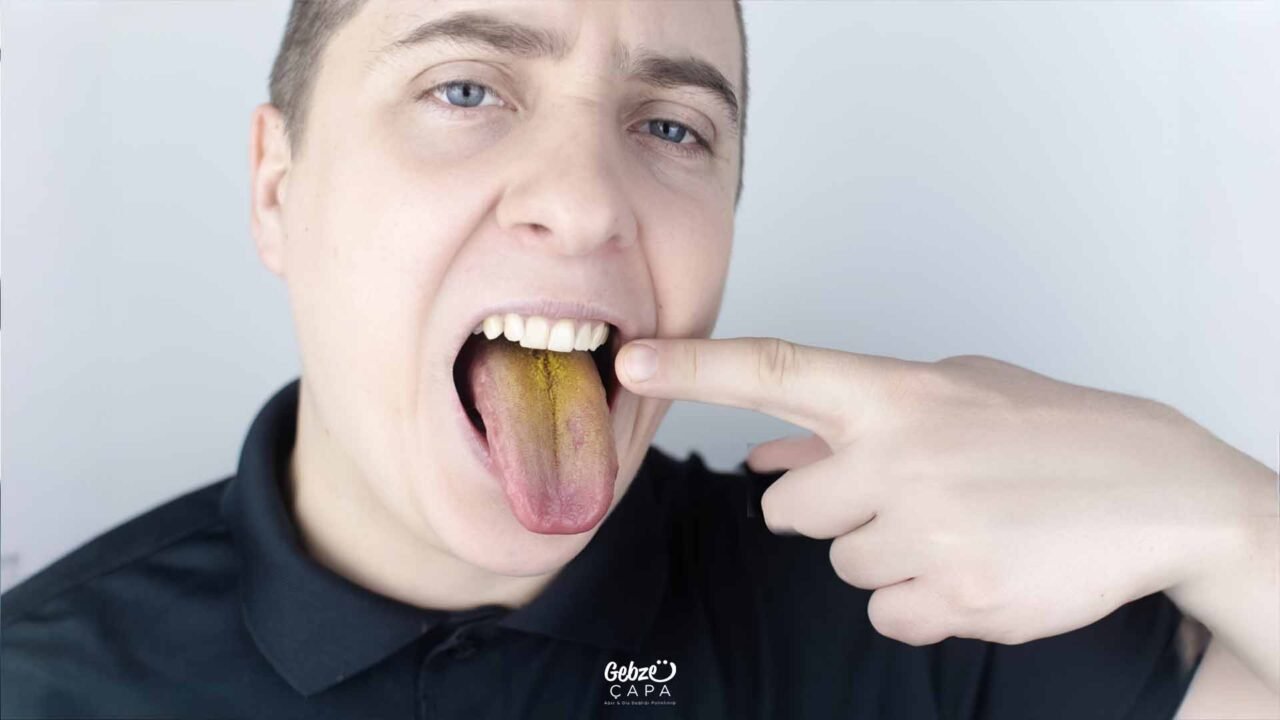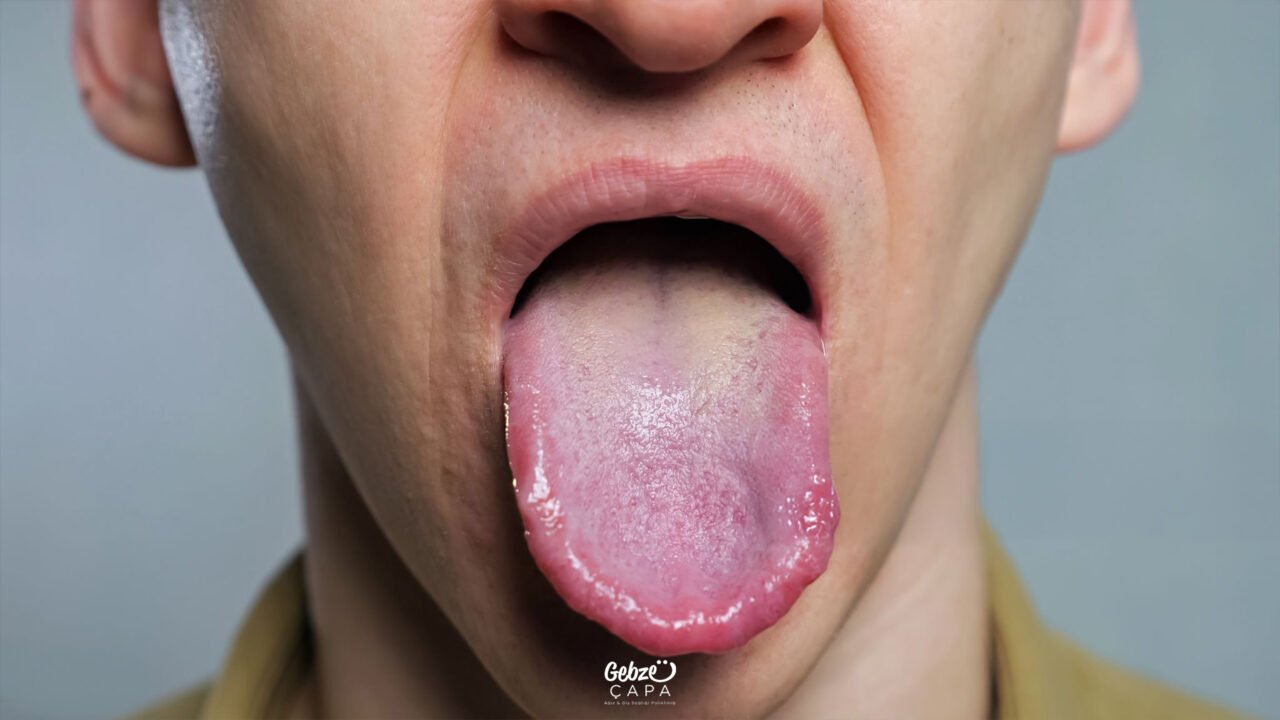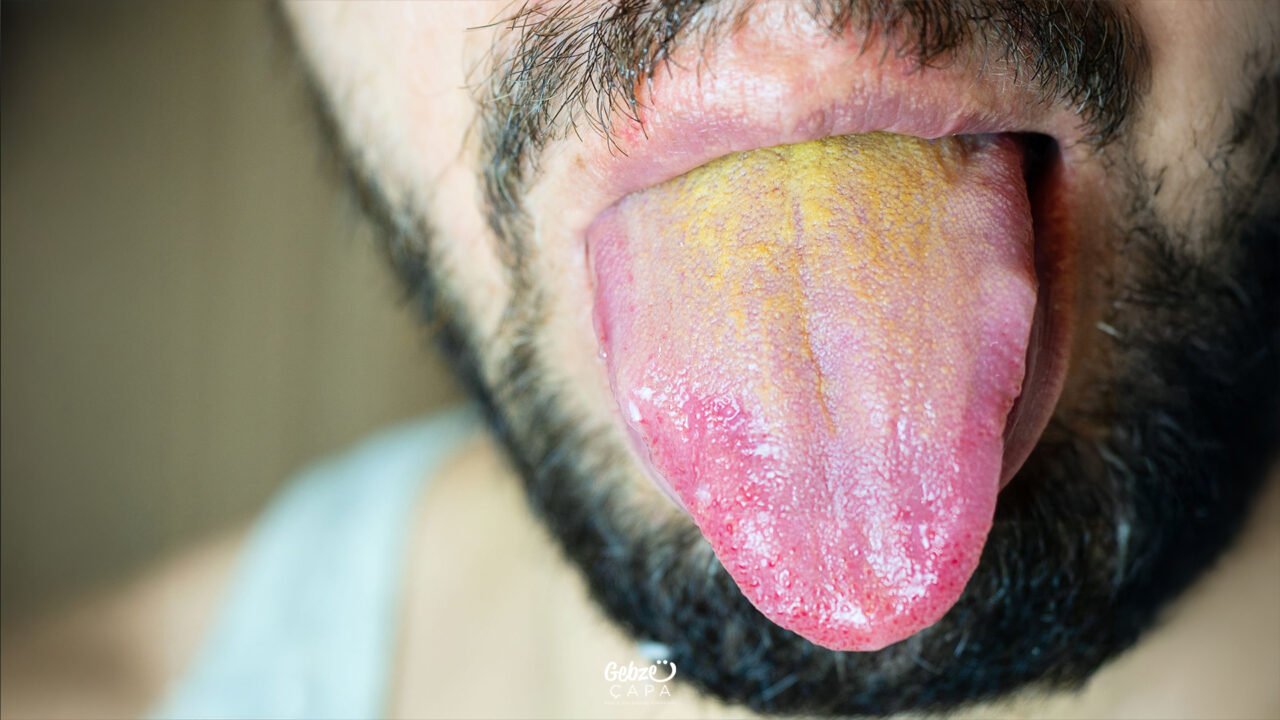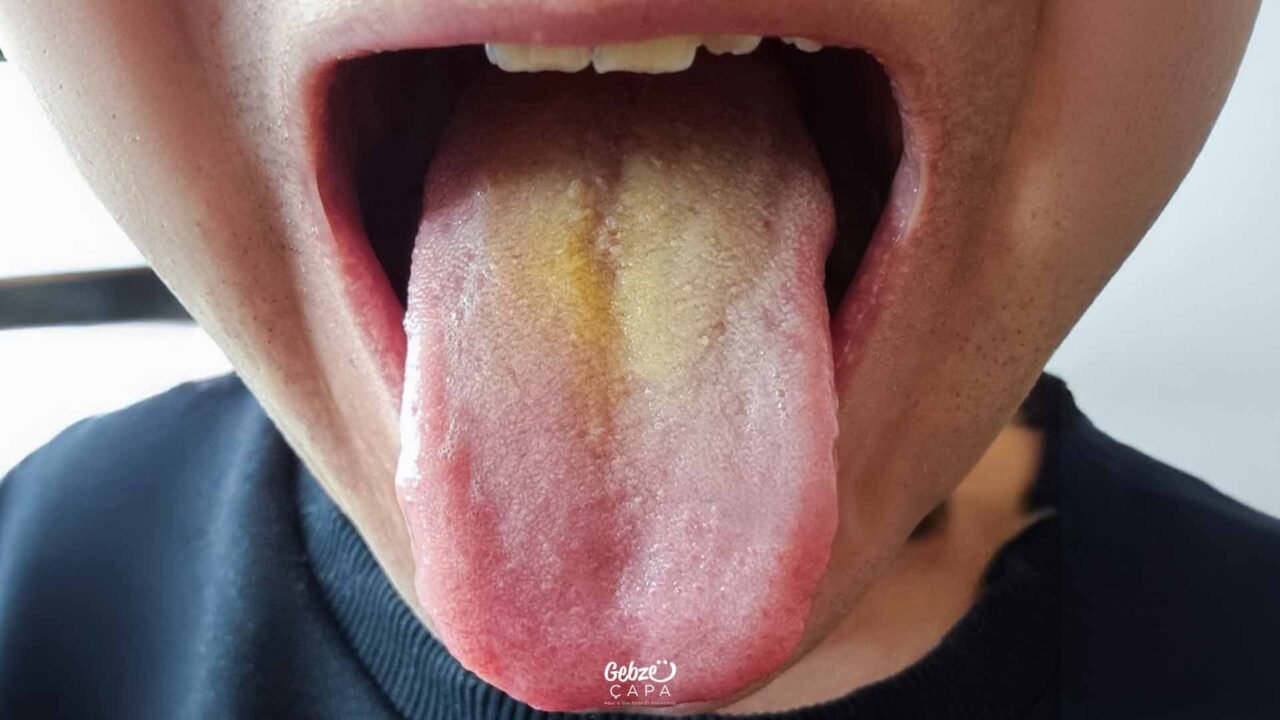Why Does Our Tongue Turn Yellow?
If you’ve noticed that your tongue isn’t the usual pink when you look in the mirror in the morning, but a yellowish hue, this may have worried you. This might be your first time experiencing something like this, and you’re wondering, “Is something going on?” Don’t worry, you’re not alone. Many people notice a color change on their tongue when they look in the mirror from time to time and wonder what it means. A yellow tongue, in particular, is often overlooked, but it can actually be sending us some signals about both our oral health and our overall health.
The appearance of our tongue—its color, its surface coating, and its moisture content—are small but noticeable indicators of our health. While a yellow tongue often develops for simple reasons, it can sometimes be a sign of underlying conditions. Poor oral hygiene, smoking and alcohol use, side effects of certain medications, or digestive problems can be among the primary causes of this discoloration.
But does this yellowing always indicate a problem? When should you consult a specialist? When should we be concerned, and when should we simply review our oral care habits?
What Does Yellow Tongue Mean?
Normally, a healthy tongue should be pale pink. You can see a thin, almost transparent white coating on it—this is completely normal, as the tiny papillae (bumps) found on our tongues and our natural oral flora can sometimes create a light coating. However, if you notice a noticeable yellow coating on your tongue, it may require some attention.
So, what causes this yellow coating? The answer is often no cause for concern. Perhaps the strong tea you drank last night or a spicy meal caused a temporary discoloration on your tongue. Habits such as coffee, tea, smoking or colorful foods such as turmeric and carrots can cause temporary yellowing of the tongue.
However, sometimes this yellowness can also be a message your body is giving you. For example:
-
If your oral hygiene is poor, bacteria and dead cells can accumulate on your tongue.
-
If you smoke, nicotine and other chemicals can discolor your tongue.
-
If you experience dry mouth, bacteria can accumulate more easily due to lack of saliva.
-
If you have stomach problems (such as reflux or gastritis), stomach acid can affect your tongue.
-
If you have a yeast infection (thrush), you may have a condition like may be the subject.

If the yellowness on your tongue doesn’t go away within a few days, is accompanied by bad breath, a burning sensation, or pain, or if you have a thick, dense coating on your tongue, it’s best to consult a doctor. Sometimes, vitamin deficiencies (especially B12), liver problems, or diabetes can also affect tongue color.
So, what could be the causes of yellow tongue?
Inadequate Oral Hygiene
One of the most common causes is inadequate oral hygiene. Our tongue, like our teeth, needs to be cleaned daily. Bacteria, dead cells, and food particles accumulated in the mouth can form a layer on the tongue over time. This layer can first turn white and then yellow.
What should be done?
Be sure to brush your tongue when brushing your teeth. You can even use a tongue scraper for more effective cleaning.
Cigarettes and Tobacco Products
Smoking or chewing tobacco is another important factor that causes color changes in the tongue. These substances disrupt the oral flora, paving the way for bacterial growth, and can cause a yellowish or even brownish coating to form on the tongue.
What should be done?
Avoiding cigarettes and tobacco products is very important for both your oral health and your overall health.
Dehydration (Insufficient Water Consumption)
Not drinking enough water can also cause the tongue to turn yellow. When the mouth doesn’t produce enough saliva, bacteria easily multiply and accumulate on the tongue, causing discoloration.
What should be done?
Make sure to drink at least 2 liters of water a day. Your water needs may increase, especially in hot weather or after exercise.
Medication Use
Some medications (especially antibiotics, iron supplements, or some antidepressants) can affect the oral flora and cause tongue discoloration. These medications can disrupt the bacterial balance in the mouth, leading to the formation of a yellow coating.
What should be done?
If you experience these side effects while taking medication, consult your doctor. It may be replaced with an alternative medication.
Stomach and Digestive Problems
Digestive disorders such as reflux, excess stomach acid, or sluggish bowels can manifest as bad breath and tongue discoloration. If a yellow tongue is accompanied by a metallic taste or bad breath, especially in the morning, it may indicate a problem with your digestive system.
What should be done?
If such symptoms become chronic, be sure to consult a gastroenterologist.

Garlic, Onions, and Spicy Foods
Certain foods can also cause the tongue to turn temporarily yellow. Spices containing yellow pigments, in particular (e.g., turmeric and curry), can leave a discoloration on the tongue.
What should be done?
Drinking plenty of water and brushing your teeth and tongue after consuming such foods can reduce this effect.
Dry Mouth (Xerostomia)
Dry mouth occurs due to decreased saliva production, which allows bacteria to proliferate easily in the mouth. Dry mouth is often seen as a side effect of certain diseases (diabetes, Sjögren’s syndrome, etc.) or medications. This can also contribute to yellowing of the tongue.
Is a Yellow Tongue a Sign of a Serious Illness?
While a yellow tongue is usually temporary and harmless, it may require more attention when it occurs with certain symptoms. For example, if the yellow color persists for weeks, is accompanied by bad breath, or if painful lesions or cracks have formed on the tongue, this could indicate more than a simple hygiene problem.
Similarly, if you experience difficulty swallowing or the yellow color darkens over time, these symptoms could indicate a health problem ranging from oral infections to fungal infections (e.g., oral candidiasis) and, in rare cases, even serious conditions such as oral cancer. In such cases, prompt consultation with a healthcare professional is crucial for early diagnosis and treatment.
When Should You See a Doctor?
If a yellow tongue is more than temporary and does not improve despite regular oral hygiene, you should see a dentist. If there is an underlying condition, early diagnosis is crucial.

How to Get Rid of Yellow Tongue
To prevent yellow tongue and maintain overall oral health, it’s helpful to incorporate some simple yet effective habits into your daily routine. First, brush your teeth at least twice a day, and make it a habit to gently clean your tongue as you do so; bacteria accumulated on the tongue’s surface can cause yellowing over time. Drinking adequate amounts of water throughout the day prevents dry mouth and helps naturally cleanse the tongue. Reducing sugary and acidic beverages as much as possible protects tooth enamel and prevents the growth of harmful bacteria.
Avoiding cigarettes and other tobacco products is crucial for protecting not only your tongue but also your overall oral health. Regular dental checkups can also help you identify potential problems early. Mouthwashes can also be a part of your daily routine; antibacterial products, in particular, reduce the number of harmful microorganisms in your mouth, freshening your breath and supporting your tongue’s health. These small but effective steps can help preserve your tongue’s natural pink appearance and maintain overall oral hygiene.


